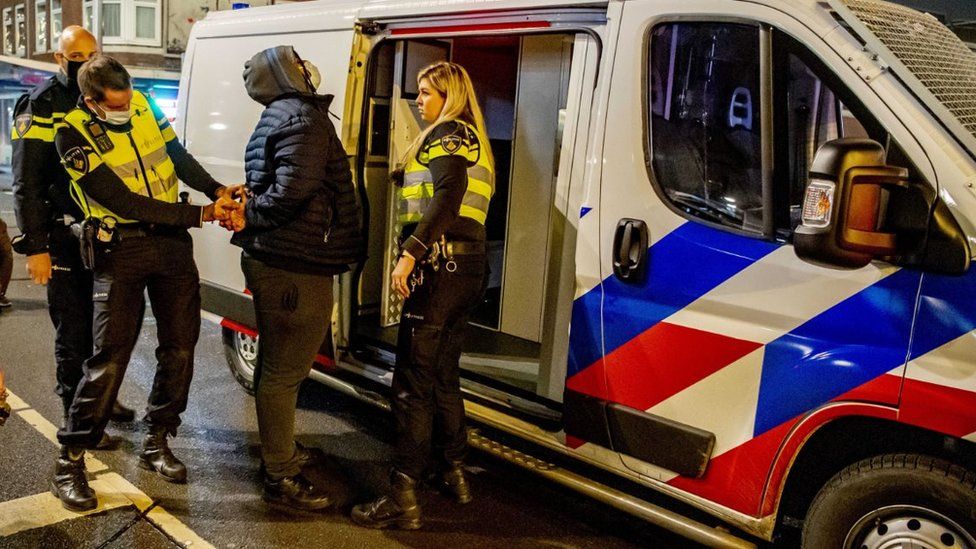Covid Court orders end to nationwide curfew in Netherlands
A court in The Hague has told the Dutch government that an overnight curfew to reduce the spread of coronavirus should be lifted immediately because it breaches the right to free movement.
The court said the 21:00 to 04:30 curfew was imposed by an emergency law when there was no “acute emergency”.
The judges’ decision comes as a blow for a government that resigned last month and now has a caretaker role.
But it is a victory for campaign group Viruswaarheid (virus truth).
The government can appeal, but it is thought it cannot prevent the curfew from being lifted on Tuesday night.
Curfews have been widely used in Europe to restrict movement. France has had an 18:00 nightly curfew but has stopped short of imposing a third lockdown. Greece has also imposed curfews, as have Spain and Italy.
Why the curfew is contentious
The Dutch measure, which came into force on 23 January, was intended to reduce movement, particularly among young people, but triggered days of rioting in a number of towns and cities. The Netherlands had not seen a curfew since Nazi occupation in World War Two.
Although the Netherlands initially avoided strict measures, a lockdown was brought in last December and, after the cabinet decided on a curfew in January, MPs backed it days later amid fears that the UK, or Kent, variant would increase infections.
In their ruling on Tuesday, the Dutch judges said the curfew had been imposed under an emergency law, even though the court said there was no emergency as in the case of a “dyke being breached”.
Fears of increased infection because of the UK variant were not valid as no curfew was imposed last year when pressure on Dutch hospitals was far greater, the judges said.
The curfew was therefore a violation of the right to freedom of movement and privacy, and limited the right to freedom of assembly.
Dutch ministers will now have to decide whether to appeal, but a court spokesman said that this would not suspend the ruling.
Commentators spoke of ministers having faced a “Catch-22” situation. When the cabinet decided on the curfew they sought the backing on MPs, but by waiting for parliamentary support, in the judges eyes they had disproved the need for emergency legislation.








